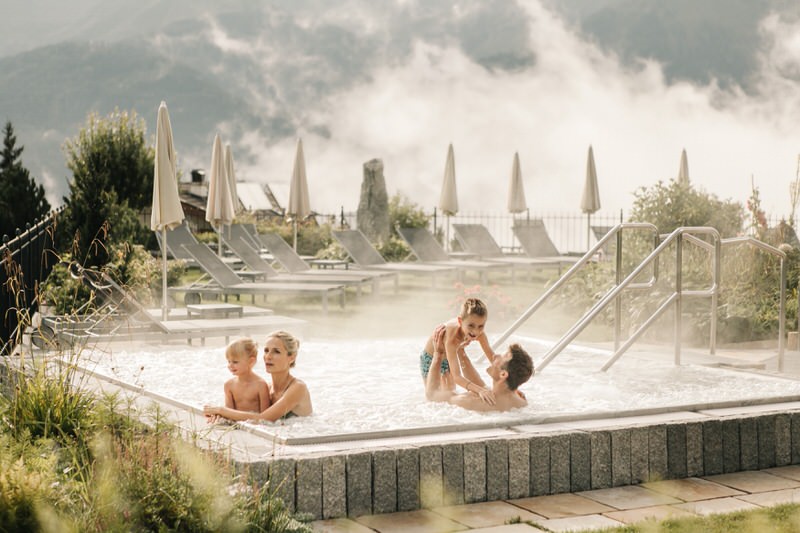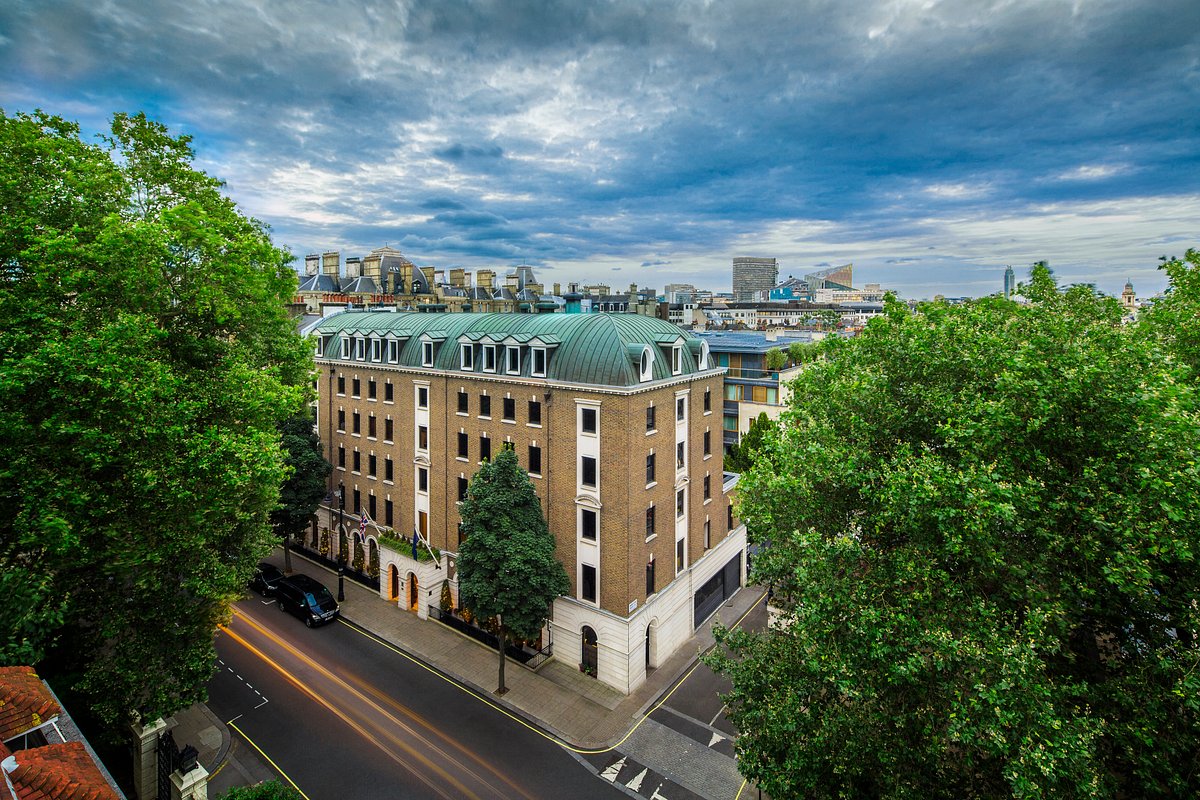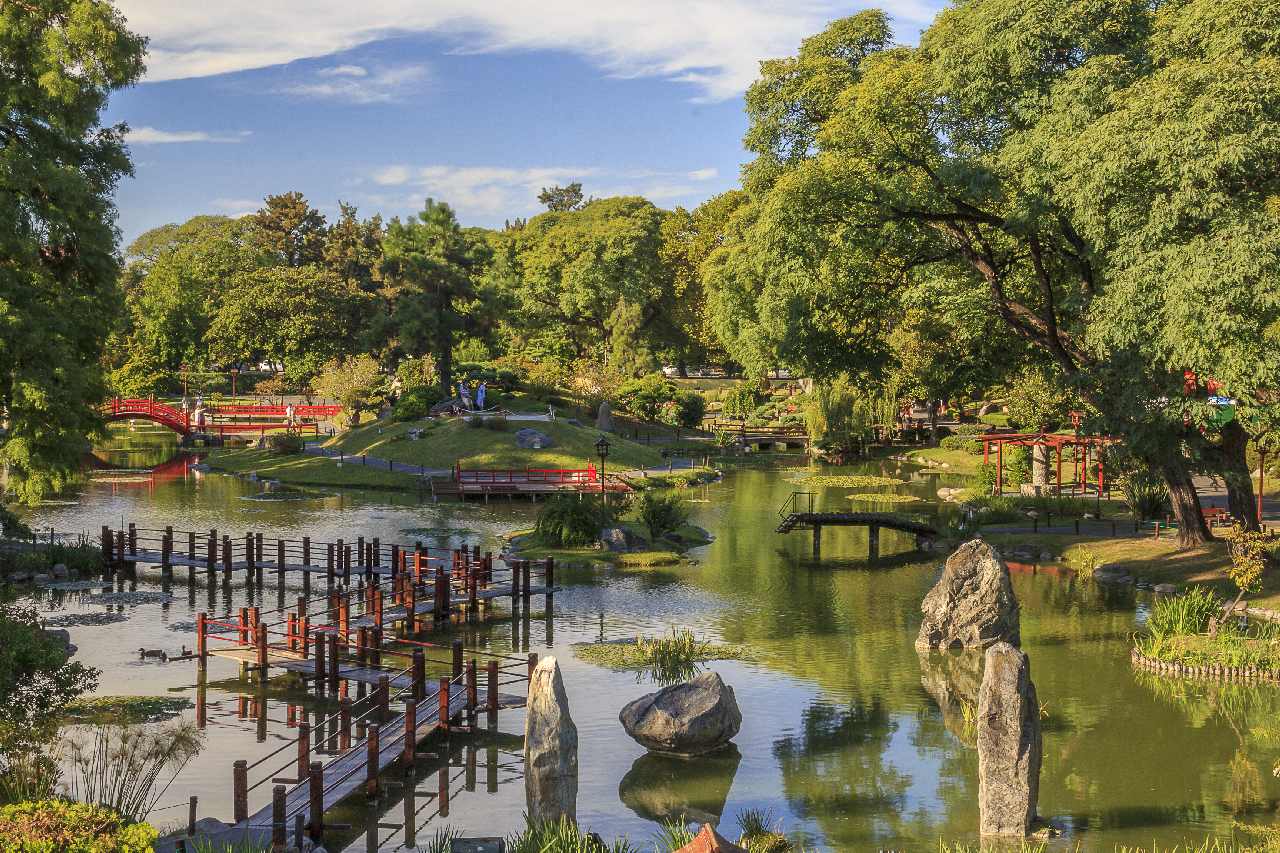In this immersive exploration, we dive into the experience of staying at Schlosshotel Fiss in Tyrol, Austria, and unpack what makes this property stand out in a crowded Alpine landscape. This article hinges on the insights and impressions gathered from a stay that blends history, luxury, and a sense of place. For readers who are curious about the details, the journey is anchored by the fuller context found in the referenced hotel review: https://www.thetravelmagazine.net/hotel-review-schlosshotel-fiss-tyrol-austria/, a resource that frames the experience with photos, amenities, and practical tips.
A First Glimpse — Arrivals, Architecture, and the Weight of History

The moment you approach Schlosshotel Fiss, you are greeted by a sense of arrival that is less about flashy signage and more about the narrative etched into stone and timber. The building’s exterior bears the patina of decades of Alpine weather and the careful stewardship of owners who recognize the power of a strong first impression. The hotel’s architecture—bold yet intimate—speaks to a philosophy of hospitality that honors tradition while inviting modern comfort. It’s a structure that seems to have learned patience from the mountains themselves: every window offers a frame for a different scene, whether it’s a snowy peak or a bustling village street below.
The lobby immediately conveys a blend of grandeur and welcoming warmth. A grand staircase, a roaring fireplace, and curated antiques hint at a storybook past, yet the space is tempered by soft lighting, plush seating, and the quiet hum of conversation that accompanies a true escape. Guests frequently pause to examine the hall’s antique portraits, each one sparking a conversation about the region’s history and the hotel’s lineage. It’s not merely a visual experience; it’s an invitation to reflect on the role such spaces play in preserving cultural memory while still serving contemporary needs.
The staff, working with an intuitive sense of pacing, set the tone for what follows. The front desk acts as a quiet command center where guests are welcomed with a genuine warmth that feels almost hometown in its sincerity. The check-in process is efficient but never rushed, as though the team understands that the real value of a luxury stay lies in the quality of the micro-moments: the length of a smile, the timing of a recommendation, the readiness to share a local secret that becomes a memory in the making.
From a design perspective, the blend of old-world charm and modern amenities is deftly executed. The materials used—native wood, stone, and textile patterns inspired by Tyrolean embroidery—create a cohesive aesthetic that grounds guests in place. Color palettes lean into warm browns, soft creams, and the occasional burst of alpine green, producing a mood that feels both dignified and cozy. The effect is more than decoration; it’s a deliberate atmosphere crafted to encourage slower travel, reflection, and restorative rest.
The surrounding landscape intensifies this effect. Schlosshotel Fiss sits near the heart of a village that is a gateway to Tyrol’s alpine experiences. The proximity to nearby trails and lifts translates into practical advantages: shorter transfers, easier access to outdoor activities, and, crucially, more time to savor the property’s on-site offerings. Without ever feeling remote, the hotel manages to retain a sense of exclusive retreat—a paradox that many luxury properties struggle to achieve.
For readers who are curious about practicalities, this section also touches on accessibility, parking, and guest flow. The property’s layout minimizes fatigue for guests who may be negotiating luggage or mobility considerations, and clear signage leads guests from the lobby to the many experiences that follow. The architecture thus serves not only aesthetics but also usability, making the hotel feel less like a fortress and more like a welcoming residence that gently extends an invitation to linger.
In sum, the arrival experience at Schlosshotel Fiss is a study in hospitality architecture: it merges historical gravitas with contemporary comfort, creating a stage upon which the day’s adventures can unfold with ease and grace.
A Glimpse into the Historical Soul
The historical echoes that permeate Schlosshotel Fiss are not mere decoration; they are the story you step into with every corridor turn. The property’s provenance—woven into its walls and told through curated archival materials—acts as a blueprint for the guest experience. The sense of continuity, from the lobby’s grand lines to the private dining rooms that host generations of travelers, is a reminder that travel can be a conversation across time as well as space. The hotel’s stewardship of its history is not performative; it informs the choices around guest amenities, service philosophy, and the way rooms are curated to reflect a sense of Tyrolean identity without becoming museum-like.
From a design perspective, this is a masterclass in balancing reverence for the past with the demands of modern life. The result is a space that invites guests to become part of the story, rather than mere observers of it. This sense of ownership—where guests feel they are contributing to a living narrative—is a subtle but powerful aspect of the hotel’s charm.
The Human Layer — Staff as Hosts, Not Just Service
A recurring theme in the first hours at Schlosshotel Fiss is how staff read the room. They notice when a guest glances at a local map and gently offer a tailored suggestion—perhaps a less-frequented hiking route or a recommended café that serves an exceptional slice of Apfelstrudel. This level of attentiveness feels effortless, a product of experienced teams who have their finger on the pulse of both guest needs and regional rhythms. The result is a guest experience that is deeply personalized without tipping into overly scripted service.
The hospitality team’s philosophy also appears in small, practical decisions: a late check-out that doesn’t disrupt the kitchen’s prep for the next service, or a discreet room upgrade that aligns with a guest’s stated preferences. The intention behind these decisions is not merely to delight but to build trust—an essential currency in the luxury hospitality world. When guests feel seen and understood, they’re more likely to embrace the property’s slower pace and use it to reconnect with what matters most to them during travel.
The human layer also extends to the culinary and wellness experiences. Staff members who guide guests through the day’s dining options or the nuances of the spa’s offerings bring expert knowledge without sounding transactional. The hospitality persona here is not a stage performance but a living conviction: the guest’s comfort is the metric by which all decisions are measured.
The Practicalities — Rooms, Comfort, and Sleep Quality
If the architecture and service establish the hotel’s mood, the rooms translate it into daily life. At Schlosshotel Fiss, the rooms are designed to be sanctuaries that host both restorative sleep and moments of quiet contemplation. The beds are the kind that invite you to sink into them with a sense of relief after a day of activity, while the linens and pillows are chosen for tactile comfort and climate compatibility. Temperature control is intuitive, allowing guests to fine-tune their environment without fighting with the system. These details matter because sleep is not a luxury here; it’s part of the wellness equation that makes a mountain escape sustainable.
The bathrooms deserve their own note of attention. Modern fixtures, rainfall showers, warm tiles, and thoughtful storage reflect a philosophy of quiet efficiency. The water pressure balances with the spa-like ambience of the room so that even routine routines feel pampered. The design also considers practicality: smart mirrors that deliver weather updates and local tips, ample outlets for charging devices, and a layout that reduces unnecessary movement. It’s the difference between a stay that is merely comfortable and a stay that actively supports guests in achieving a restorative rhythm.
The rooms also reveal the hotel’s approach to personalization. It’s common to find little touches that reflect guest preferences or the property’s own seasonal character—a discreet note about the best time to view the valley sunrise, or a welcome amenity tailored to a guest’s stated dietary restrictions. The overall effect is a sense that you’ve been invited to inhabit a well-considered space rather than to conform to a generic hotel pattern.
Culinary Delights and Alpine Wellness — Where Flavor and Repose Meet

The heart of any luxury Alpine stay is often found in the food and wellness moments that punctuate the day. Schlosshotel Fiss dedicates attention to both, ensuring that meals and rest are not afterthoughts but integral dimensions of the guest journey.
The dining rooms are designed to elevate the sense of place without precluding comfort. Tables are set with care, china reflects a restrained elegance, and the staff’s timing elevates the experience from good to memorable. The menu strategy emphasizes Tyrolean classics reinterpreted with modern technique, allowing familiar flavors to feel fresh and relevant. Seasonal produce takes center stage, and a thoughtful wine program provides a narrative arc that complements the kitchen’s offerings. The result is a dining experience that feels both rooted in regional identity and receptive to contemporary palates.
Creativity shows up in subtle ways: a dessert as a tale of the region’s fruit harvest, or a seafood course that nods to Tyrol’s river ecosystems in a surprising, yet harmonious, pairing. Even for guests who are not food-obsessed, the meals offer a sense of ceremony—the rhythm of service and the artistry of plating creating a ritual of nourishment rather than a routine.
Wellness at Schlosshotel Fiss is equally crafted and intentional. The spa facilities provide a sanctuary where guests can unwind, recharge, and reset. The design of the spa spaces emphasizes quietude, with gentle lighting, natural textures, and an atmosphere that encourages slow breath and longer sessions of rest. Treatments leverage local ingredients and spa traditions to enhance a sense of place, making the wellness experience feel like a curated journey rather than a generic service menu. For travelers juggling one foot in adventure and the other in rest, the wellness offerings provide a critical counterbalance—an opportunity to recover fully from days spent on the trails or in the town.
The Spa Experience — Mindful Recovery and Sensory Richness
Spa spaces at the hotel are designed to be more than rooms with heat and water. They are quiet sanctuaries where sound becomes a design element and temperature shifts signal a transition from activity to rest. The treatment menu reads like a careful manifesto for recuperation, combining traditional Tyrolean techniques with modern wellness science. Therapists bring a sense of presence and attentiveness that makes massages feel more like a guided journey rather than a routine procedure. The sensory experience—aromatherapy, low lighting, and soothing textures—contributes to a deep sense of release, which is sometimes the most valuable takeaway from a mountain escape.
A notable feature is the pool and sauna area, where panoramic windows invite outdoor light and mountain air to mingle with warmth. There’s an elemental feel to the space—water, steam, and wood—that reinforces a holistic sense of well-being. The poolside or sauna sessions become a daily ritual for guests who prioritize balance in their travel. For some, this is where the stay’s value culminates: a moment of stillness that makes the rest of the day feel more meaningful, whether it’s a family excursion or a romantic retreat.
Culinary Innovation in a Mountain Kitchen — A Slow-Travel Philosophy
The kitchen’s approach to food is a reflection of a broader travel philosophy that favors depth over speed. It’s not about rapid-fire meals designed to maximize turns, but about lingering experiences that invite guests to savor the dish, understand its roots, and appreciate the craft behind it. Fermentation, foraging-inspired garnishes, and techniques borrowed from broader European culinary traditions appear in thoughtful, restrained doses. The result is a menu that encourages conversation: about the seasons, about the farmers who supply ingredients, and about the chef’s evolving relationship with Tyrolean terroir.
The wine program is a companion to this culinary approach. It’s curated with a sense of place and a willingness to explore beyond the obvious choices, offering small producers and regional varietals that tell a story of Tyrol’s evolving wine scene. The pairing suggestions are practical and well-considered, even for guests who might not identify as wine enthusiasts. It’s this combination of culinary storytelling and accessible execution that elevates meals beyond nourishment and into an experiential thread that binds an itinerary together.
Alpine Adventures and the Slow-Pedaled Itinerary — Getting the Most from Your Time

A stay at Schlosshotel Fiss is frequently described as a gateway to Tyrol’s outdoor wonders. The location is not a gimmick; it’s a stage for a seasonally adaptive itinerary that encourages active days alongside restorative evenings. The hotel’s proximity to trails, lifts, and village amenities creates a natural rhythm that guests can tune to their own pace.
The day typically begins with a generous breakfast that leans into local products and a robust selection for varied appetites. The breakfast setting the tone—calm, flavorful, and abundant—prepares guests for a day of exploration, whether that means a climb up a ridge, a descent on winding forest paths, or a museum visit in a nearby town. The timing and layout of morning dining mirror the hotel’s broader philosophy: give guests room to begin their day at their own speed, with the assurance that a well-structured day awaits.
Treks, slopes, or cycles in Tyrol are as accessible as the hotel’s guest services can make them. The staff often provide maps with recommended routes that match a guest’s fitness level and interests, whether it’s a gentle valley walk or a more challenging ascent. It’s not just about the scenery; it’s about the process of moving through the landscape with intention. The hotel’s concierge becomes a partner in design—helping craft a day that balances exertion with periods of rest and reflection, ensuring that guests return each evening with stories rather than fatigue.
Even guests who come to Schlosshotel Fiss for a slower rhythm will find their days well-served by the property’s own lineup of activities. Short guided walks, spa-centered afternoons, and cultural tastings in the town create a sense that life is happening both inside and outside the hotel walls. The sense of place is reinforced by the hotel’s choices around experiences, which consistently tie back to Tyrol’s traditions, crafts, and natural beauty.
The Value of Time — How a Slow Itinerary Transforms Travel
A recurring insight from guests who choose a slower pace is the redefinition of value. When travel isn’t driven by checkpoints and checklists, the quality of sleep, meals, and meaningful encounters becomes the true currency. A slower itinerary at Schlosshotel Fiss encourages you to linger in moments that would be impossible in a hurried trip: a shared conversation with a fellow traveler over a late-night coffee, a quiet moment by a window as snowfall begins, or a long bath while listening to a rain on the roof. These experiences accumulate into a richer sense of memory, which many travelers find more satisfying than a trophy photo album filled with fast, algorithm-driven highlights.
The hotel’s design and service ethos support this time-rich approach. By reducing friction—through well-timed check-ins, intuitive room controls, and a staff that anticipates needs—guests can extend the perceived value of every minute spent on-site. It’s a reminder that luxury is not solely about abundance but about the quality of attention, the depth of the experiences offered, and the ability to leave with a stronger sense of personal renewal.
What It Feels Like to Return to a Home Away From Home
When guests leave Schlosshotel Fiss, they often take with them a sense of having spent time in a place that understood their needs, and they carry the hotel’s values forward as a mental benchmark for quality. The sense of return is less about a destination and more about a state of mind: the ability to find bread-and-butter joy in simple routines, to savor quiet moments, and to appreciate how a well-designed space can support health, happiness, and curiosity.
A key takeaway for travelers is the benefit of seeking places that intentionally blend memory, culture, and comfort. Schlosshotel Fiss embodies that blend through its careful stewardship of architecture, hospitality, and landscape. It’s not a retreat that asks you to forget the outside world; it’s a place that invites you to bring your outer life into a more reflective, restorative inner space. For many guests, this becomes a powerful reminder of why travel can be meaningful: not just a trip but a powerful practice of attention.
Reflections on Design, Service, and the Future of Alpine Hospitality

As guests depart with memories catalogued in the mind as much as in the camera roll, the broader implications of a stay at Schlosshotel Fiss resonate. The property demonstrates that alpine luxury can be both grounded in history and forward-looking in its approach to guest needs. It shows that the best hospitality in this region does not merely chase trends but instead cultivates a durable sense of place, delivering reliability, warmth, and subtle innovation that resonates with a modern audience.
What does the future look like for a hotel like Schlosshotel Fiss? In many respects, it’s about balancing delicate hands—preserving the old-world charm that makes the property feel unique while continuing to innovate around guest expectations for technology, sustainability, and wellness. Guests demand experiences that feel authentic, not curated; experiences that offer quiet luxury, meaningful human interactions, and a sense of environmental responsibility. The hotel’s continued success will hinge on its ability to maintain this balance as the region’s tourism economy evolves and new travelers arrive with different needs and values.
From a sustainability perspective, there are opportunities to deepen the property’s commitments without compromising guest comfort. Initiatives might include more transparent energy use metrics visible within the property, broader adoption of locally sourced materials for renovations, and a continued emphasis on waste reduction across dining and spa operations. Guests increasingly appreciate seeing tangible steps, not only promises, and a hotel that can demonstrate progress in these areas can build lasting loyalty while contributing positively to the surrounding environment.
In terms of wellness, the industry is exploring new modalities—mindfulness programming, digital detox zones, and sleep-science-informed room design. Schlosshotel Fiss could naturally incorporate elements of these trends by expanding its spa repertoire, offering guided mindfulness sessions tailored to mountain living, and refining room environments to optimize circadian rhythms. Such enhancements would complement the existing restorative atmosphere and position the hotel as a compelling destination for travelers seeking both adventure and deep rest.
On the culinary front, innovation need not replace tradition. The most successful paths here involve chefs who honor Tyrolean heritage while inviting global influences in a measured, respectful way. This approach can yield menus that surprise guests without alienating them, preserving a sense of local identity while embracing culinary curiosity. It’s an approach that fits well with a clientele that values both authenticity and novelty.
Finally, the experience of Schlosshotel Fiss raises broader questions about the role of luxury in small communities. The hotel is not just a business; it’s a cultural institution that shapes how visitors perceive Tyrol and, by extension, the Alps. Responsible growth means ensuring that such institutions remain accessible to a diverse audience while safeguarding the social and environmental fabric of the town. The best operators recognize that luxury can be a force for good when applied with humility, transparency, and a long-term commitment to the communities they serve.
Conclusion
Schlosshotel Fiss Tyrol Austria embodies a thoughtful fusion of history, luxury, and place, delivering an experience that lingers long after the keys are returned and the luggage is unpacked. The hotel’s architecture and service weave together to create a sanctuary where guests can slow down, savor meaningful meals, and reconnect with themselves and their surroundings. Its rooms offer a retreat that respects the body’s need for rest, while its wellness and culinary offerings honor Tyrolean traditions through modern execution. The staff’s hospitality—smart, intuitive, and sincerely warm—transforms a stay into a meaningful exchange, a reminder that travel at its best can be a form of care. As Tyrol continues to evolve as a premier Alpine destination, Schlosshotel Fiss stands as a model for how luxury can be deeply rooted in place, attentive to guest well-being, and committed to sustainable, inclusive growth that benefits both visitors and locals alike.
If you found value in the above exploration, you may want to read more about the hotel through the original feature at https://www.thetravelmagazine.net/hotel-review-schlosshotel-fiss-tyrol-austria/, which provides a detailed review, photography, and practical tips that complement the themes discussed here.


